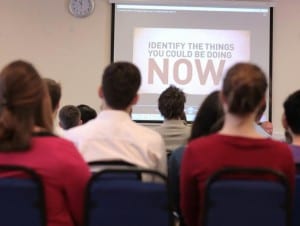How the Global Citizenship Employability Programme helped me : UCL Alumni
By UCL Careers, on 21 April 2015
James Finch, Physics 2014 graduate, attended the Global Citizenship Employability Programme last summer and he tells us why it was so helpful
Graduating from Physics I wanted to pursuit a Technology career in the city. In previous summers I had obtained relevant work experience through internships but hadn’t converted them into full time positions. I knew that applications opened in late summer and lasted till around the New Year and my aim was to work hard applying over this time period.
The first step I took to prepare was to participate in the Global Citizenship Employability Programme. This covered many areas of the application process:
> Application forms
> CVs
> Cover Letters
> Psychometric tests
> Assessment centres
> Interviews
> Job hunt planning
Furthermore through the course you are introduced to the many other services that UCL Careers offers, such as the Alumni programme, 1-1 sessions, careers fairs and workshops. Through the Alumni programme I was able to obtain contacts within the industry/organisations that I was applying for, which was invaluable as you really get to understand what it is like to work for these companies and in these careers. Finally and most importantly I was introduced to the great team at UCL Careers and found the consultants very helpful in getting advice.
Applying what I had learned from the Employability programme, I started making progress with my applications, securing interviews with firms I really wanted to work for. I found it extremely beneficial to practise for interviews with the consultants, it helped build confidence and I received useful tips on how to improve. I always felt that the consultants came well prepared with relevant information about the types of questions that might be asked and about how the interview process would be carried out.
All this soon resulted in securing a job as a Technology Analyst at an Investment Bank. Much hard work was required on my part but the advice and support I received through the careers service really made it easier, with all the tips and hints along the way, that are difficult to pick by yourself. Even if you are very confident, there is no harm in reaching out to these guys, you will definitely learn something new that will benefit you in your job hunt. Good luck!
If you’d like to find our more about the Global Citizenship Employability Programme, visit: www.ucl.ac.uk/global-citizenship/employability
 Close
Close

